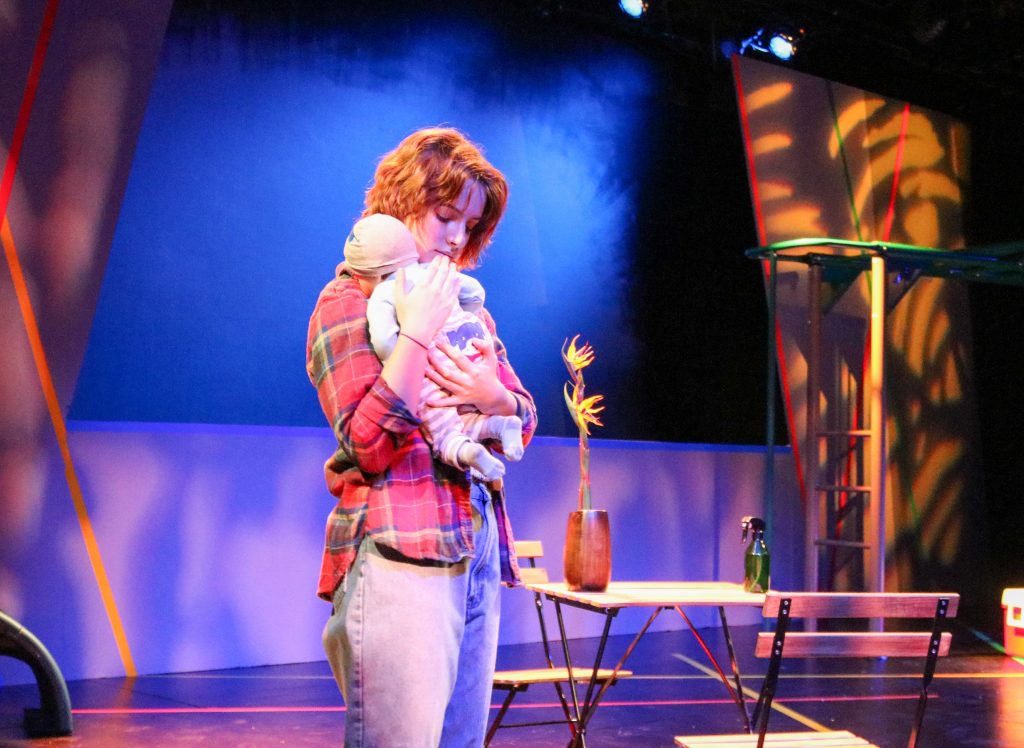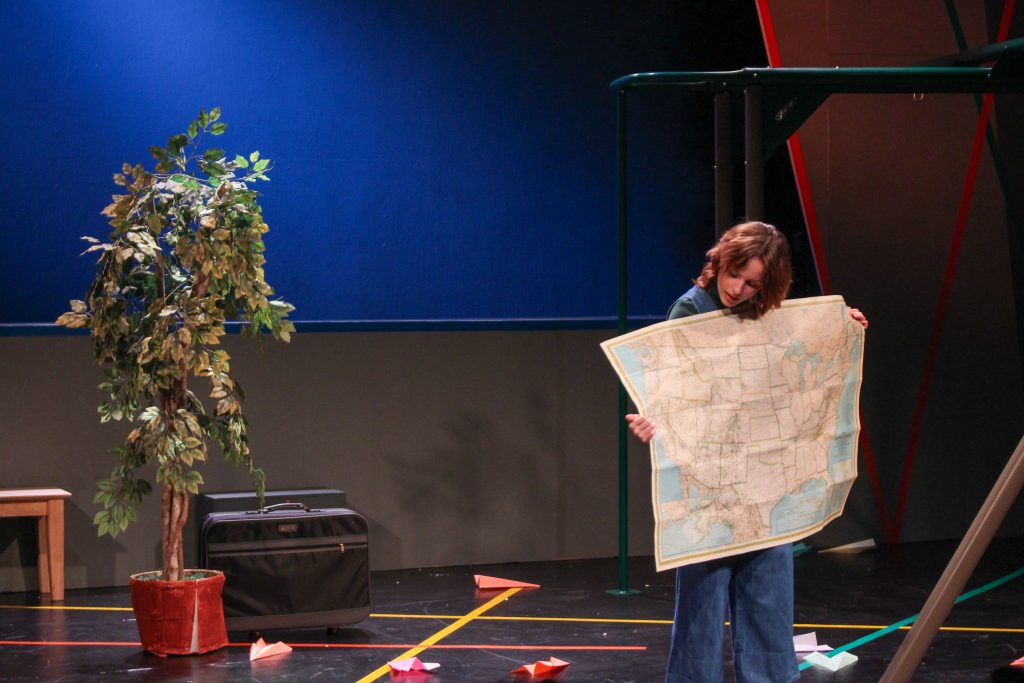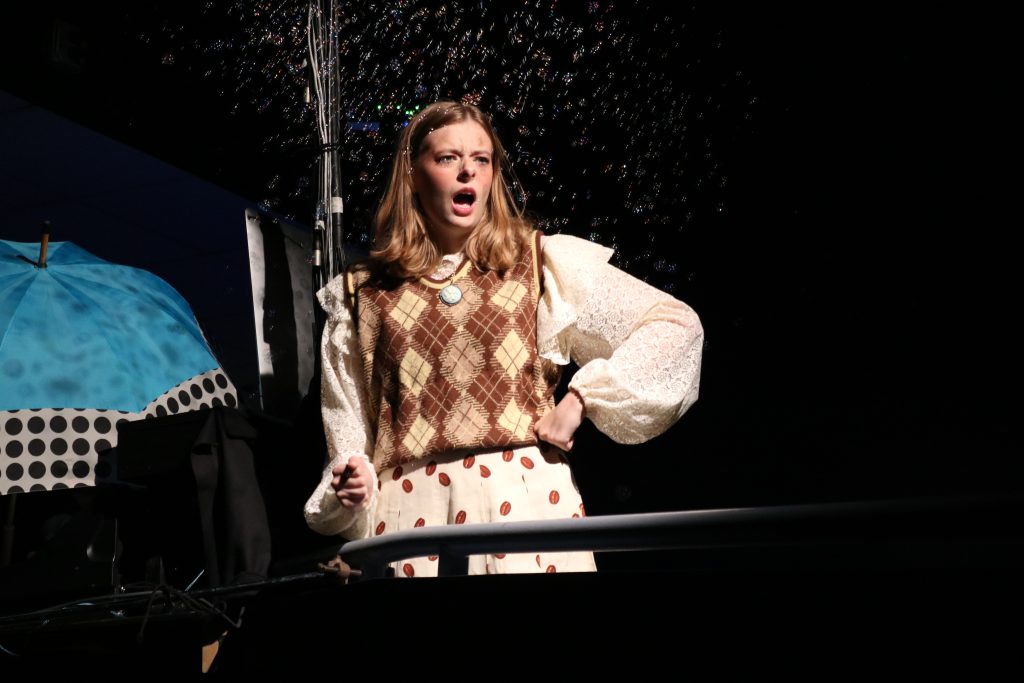Schultes discusses her role as Vivian, dealing with the aftershock of hard life events and inevitable change.

Abbe Schultes and her character Vivian in “Aloha, Say the Pretty Girls,” are two sides of the same coin. Heads is the actress, a young queer woman who is still in school with hopes of one day being in movies, and whose life is just about to begin. Tails is her character, Vivian, whose life has already begun and going through a pretty intense shift. Vivian lost her boyfriend to another woman and has to deal with her new world without him. Together, they show a feeling universal to us all, the uneasiness of change.
What role do you play in “Aloha, Say the Pretty Girls?”
I’m playing Vivian, who is a woman in her mid-20s who, at the top of the show, goes through a pretty intense life shift that has some after-effects that then carry her into the second act. She tries to find herself in a new setting, and seeks a new way of looking at life.
How can the audience relate to the themes of “Aloha, Say the Pretty Girls?”
This show is really about that quarter-century life crisis that one can have, [like], “Oh, I feel like I’m supposed to be a lot more successful and stable and set for life than I am right now.” I think the pandemic ripped so many years away from us. Everyone feels like they are supposed to be a lot more prepared for life than they are. This play speaks to that. Every character has incredibly real struggles and is relatable in a multitude of ways. And I think it’s about these characters finding their way through these struggles, though not all of them get a fairytale ending.
So this play originally premiered in 1999. How would you compare its relevance then to now, in 2023?
It’s set in New York City pre-9/11, which is a completely different city compared to today. The general culture of how we view the rest of the world has shifted since then; we all look at living life to the fullest in a more drastic way. Especially, having dealt with the pandemic, everyone has this same thought of what’s going on with the world as we know it. I think this is also what happened after 9/11. No one knew what was gonna happen next, and we still don’t. I think the message of the show is, “I’m not satisfied, and I want to change that. I want to be satisfied with my life. I want to have control over that.” I think that will resonate with audiences, even more now than maybe it did in the ’90s.

(Abbe Schulties) who seeks a more meaningful purpose in life and wishes to travel. Photo by Julie Marasco.
No one likes to discuss change and sensitive topics. How would you describe the way this play touches on understanding the aftershock of certain events?
What drives Vivian in the entire first act is that she doesn’t want anything to change. And yet, things won’t stop changing around her and to her. That leads her to the end of the first act when she finally decides to take control of the situation.
As an actress, how were you able to access that feeling of “I don’t want things to change, but things won’t stop changing”?
Well, it was pretty easy for me to identify that as her driving force because that’s how I am. I hate change. Anytime a big shift in my life happens I have a really hard time adjusting to it. I’ve learned that’s part of having ADHD. When I was diagnosed, everything kind of fell into place for me. Then this show came right at the time I was figuring all that out and it was very comforting. To have a character that is so similar to me in this deep level of [being] uncomfortable that all of these massive changes are happening to her that she’s trying so hard to embrace, and she’s just struggling with it. But at some point, you have no choice but to embrace change. Whether you like it or not, you have to accept that that’s what’s happening.
